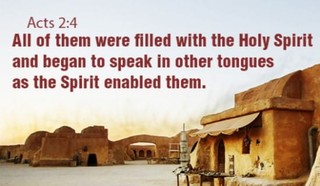
- Recent Translations
- All Translations
Acts 2:26
Share
Settings
Acts 2:26 Meaning and Commentary
Therefore did my heart rejoice
Because that he had always the truth, faithfulness, and power of God in his view, and the presence and protection of God with him; and which are sufficient to make the hearts of his people, as well as of him, to rejoice:
and my tongue was glad:
in the Hebrew text it is, "my glory"; and so the Syriac version renders it here; which Kimchi explains of the soul, because that is the glory of the body; but our apostle rightly interprets it of the tongue, which is so called, ( Psalms 30:12 ) and ( Psalms 57:8 ) and ( Psalms 108:1 ) because it is both the glory of man, for that being endowed with the faculty of speaking, gives him a glory above the brute creatures; and because it is that by which he glorifies God, by ascribing greatness to him, speaking of his marvellous works, and singing his praises, as Christ did, in the great congregation, among his apostles, a little before his death.
Moreover also my flesh shall rest in hope,
or "safely"; meaning, that his body should lie quietly in the grave, as in its resting place from all toil and labour, pains and sorrows, and be secure from worms, or any corruption. Or this may be understood of his person being in a quiet, firm, and full hope of the resurrection of the dead, and of eternal life and glory.
Acts 2:26 In-Context
Footnotes 1
- [a] Lit. 'and more also.'
